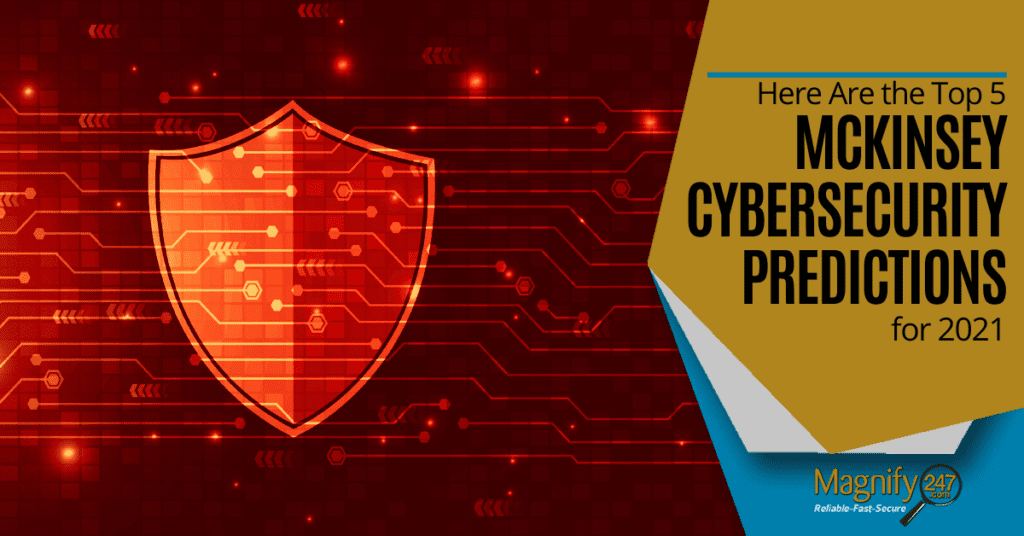Over the last year and a half of the pandemic, cybersecurity experts have been busy trying to keep up with the increased stream of attacks. Ransomware attacks grew by 485% in 2020 and remote workers created a new area of vulnerability for company networks.
watch a short video > https://youtu.be/ANgGAfAtegw
McKinsey is a leading consulting firm that specializes in cybersecurity and it has released several predictions for the things that companies need to be aware of to be prepared for the rest of this year and going forward.
Recent attacks on the supply of vital products (gasoline and meat) have people realizing just how dangerous the cybercrime world has become. Long gone are the days of a hacker sitting in a basement sending out a worm or virus. Today, large criminal organizations treat ransomware as a commodity and continue to optimize its delivery and profitability.
When Colonial Pipeline was hit with a ransomware attack in early May of 2021, it caused gas shortages throughout the East Coast due to panic buying. The national price for a gallon of gas also rose to over $3.00, a level not seen since 2014.
On the heels of that attack was the attack on JBS, the world’s largest supplier of beef and pork. It also had to shut down operations for several days at many of its facilities.
When cyberattacks impact the food we have available at the grocery store or the ability to fill up your car with gas, it’s a sign of dangerous things to come if companies don’t take precautions to protect their technology infrastructure.
You can gain some valuable insights into the types of technology protections you should be looking into by reviewing McKinsey’s Top 5 Cybersecurity Predictions below.
1. CISOs Will Seek Convergence Across Solutions
The drive to cloud adoption before and during the pandemic has left many Chief Information Security Officers (CISOs) with a mess when it comes to consistent cloud security across all platforms.
Some of the challenges seen are:
- Different cloud tools having differing native security capabilities
- Security tools from different vendors conflicting with each other
- Problems with misconfiguration of security settings in many cloud apps
McKinsey predicts that CISOs will be looking for consistency across cloud solutions and streamlining security to allow for one set of policies that all cloud environments will utilize.
2. MFA Services Will Become Necessary for RDP (Remote Desktop Protocol)
At the beginning of 2021 as compared to the same time in 2020, anti-malware software provider Kaspersky saw a 10-fold increase in the number of brute force attacks on RDP.
With more of the world working remotely due to the pandemic, and the expectation that many companies will keep remote flexibility in place, RDP has become a popular tool.
It’s also vulnerable to hackers breaking in, especially if users use weak passwords.
It’s expected that multi-factor authentication (MFA) will become required for RDP connections to make them more secure. MFA may also become mandatory for cloud tool logins to keep hackers from taking over an account.
Multi-factor authentication can block 99.9% of attempted fraudulent account logins.
3. Remote Employees Will Be a Target for Cybercriminals
There are several reasons for the prediction that remote employees will be a major target for hackers. These include:
- Remote employees are often on less secure Wi-Fi.
- Devices used by remote employees are often sharing a network with less secure family devices.
- People working from home can get lax in their cybersecurity hygiene.
- Hackers know that remote employees are accessing the same sensitive data that they do at the office.
According to IBM Security, remote work has caused an increase in the cost of a data breach by $137,000.
4. Unsecured VPN Access Will Be a Gateway to Vulnerability
This prediction has already come true in the Colonial Pipeline attack. The breach was caused by a hacker gaining access to the company network through an unused VPN (Virtual Private Network) account that was not protected with multi-factor authentication.
VPN is a way to encrypt the connections of employees when they are working away from the office, so its use has skyrocketed during the pandemic. But many companies haven’t properly secured those employee logins, leaving them vulnerable to a breach.
5. Ransomware Attacks are Likely to Intensify
Ransomware has gone from one of the many forms of malware to one of the most dangerous forms of cyberattacks. In most cases, companies are at a complete shutdown when hit with ransomware because their systems can’t access any of the data needed to operate.
Ransomware has become very costly, with remediation costs more than doubling over the last year to $1.85 million. This is one of the most important types of cyberattacks to safeguard against.
Schedule a Cybersecurity Assessment Today!
Don’t run the risk of a damaging cyberattack. Magnify247 can help your Hamilton County business with an assessment of your current safeguards and recommendations to keep you protected.
Contact us today to learn more!







